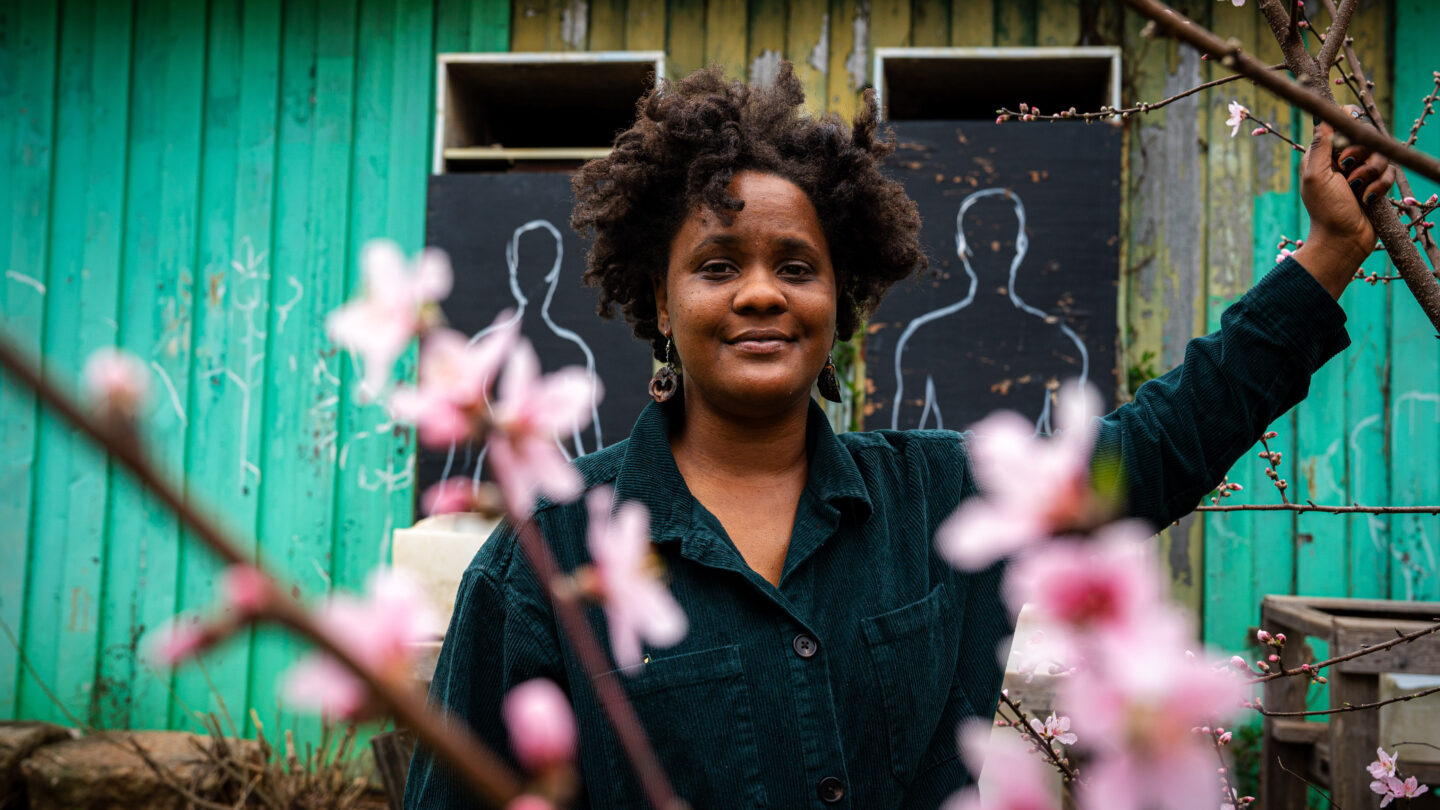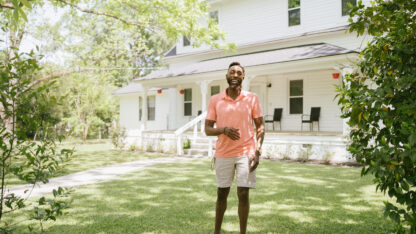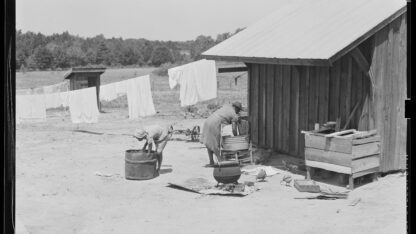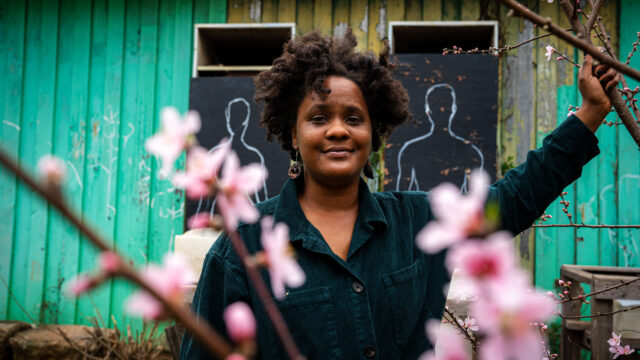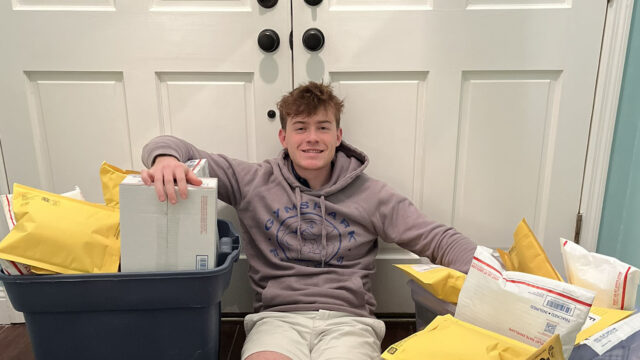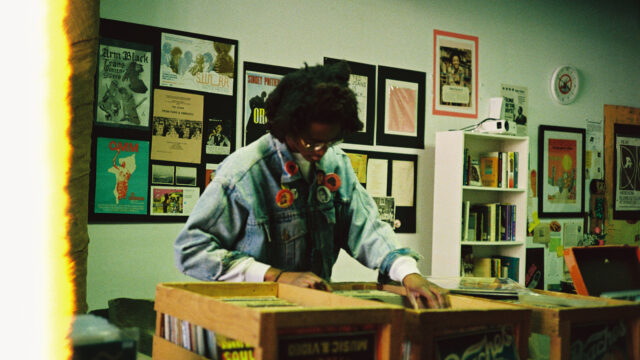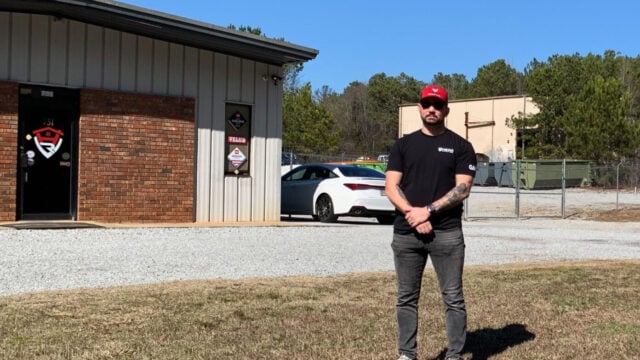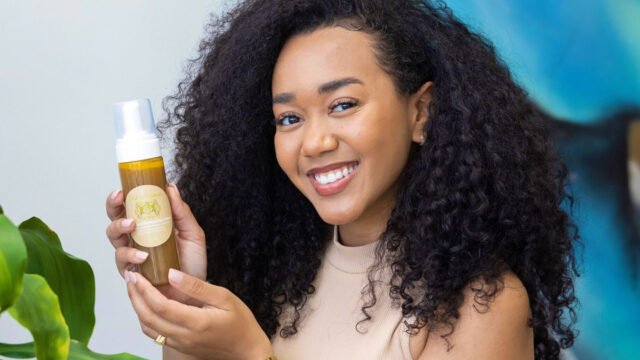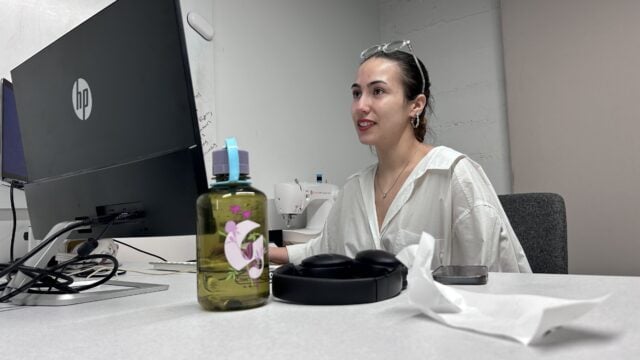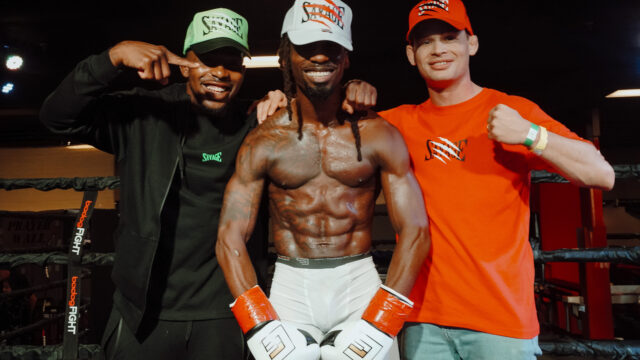Agriculture is the biggest industry in the state of Georgia. According to the Georgia Farm Bureau, the Peach State has over 67,000 farmers – but only a few are younger than 35.
Ivori Schley is a 27-year-old Black female farmer. She runs AfroAgriculture, LLC, alongside her best friend, 26-year-old Nallah Muhammd.
AfroAgricuture teaches wellness and outdoor skills to Black youth dealing with issues like food insecurity. In 2021, Feeding America reported over 335,000 food-insecure people under 18 in Georgia.
The USDA also reported that Georgia had fewer than 2,000 female producers under 35 in 2022. Additionally, only 815 female producers in the state were Black, and Schley is a part of that number. She uses her garden cultivation and management background for the company.
Recently, she educated a handful of volunteers about seed preparation at the Oasis at Stonecrest in South DeKalb County. Through AfroAg, Schley is progressing on a two-year-long hydroponic greenhouse project at the Oasis.
The greenhouse will house plants that grow using a water-based solution rather than soil. The structure is hollow and shed-like, with white PVC pipes snaked along the inside.
Volunteer Zakkiyyah Ansari says working in the greenhouse was a new experience. She believes Schley’s work through AfroAg can benefit others.
“I’m going to try to hook her up with my school. I’m trying to do it because they need to learn this. This is cool,” Ansari said.
Education about farming is at the foundation of AfroAgriculture. Schley and Muhammad saw an increased demand for these skills as they started their business amid the COVID-19 pandemic.
“This work isn’t just producing and selling. I learned that it’s serving more than anything… You’re growing people more than you are growing vegetables.”
Nallah Muhammad, co-owner of AfroAgriculture
Schley says back then, it was prize time for her to be a farmer.
“If Walmart really broke down, what are we going to do?” Schley said. “If these convenient resources are gone, how can I continue to live? How can I continue to provide for my family?”
But, according to Muhammad, who oversees the North Carolina branch of the business, getting started was tough during such uncertainty.
“Because the work we do is hands-on, it was a bit harder to do the scale that we were wanting to do it,” Muhammad said. “(It) started alot with us investing our own money to get supplies, to go to different cities to do these different programs safely.”
AfroAgriculture began to expand their work following the pandemic. The business’s most significant source of income is a sponsorship through the local nonprofit West Atlanta Watershed Alliance or WAWA.
Still, AfroAg has other ways of making money, such as specialty workshops like plant-based arts and yoga and funding through independent grants. Schley also sells handmade products like walnut earrings and burlap bags.
“If these convenient resources are gone, how can I continue to live? How can I continue to provide for my family?”
Ivori Schley, farmer and co-owner of AfroAgriculture
Most of Schley’s farm work for the company takes place at the Historic Hartnett Farm near Atlanta’s West End neighborhood. Local farmer and AfroAg associate Tawndalaya Daroza-Cesar says the one-acre property is the remains of the formerly segregated Hartnett Elementary School from the 1930s.
“Hartnett, he was a reverend. This land is named after him in this community. They were able to band together to be able to literally activate this space and to start their own school. The shed is actually the remnants of the library,” Daroza-Cesar said.
Produce like lettuce, radish and kale are currently in season at the farm, but Schley also chooses to grow the curiosity of those she works with.
“A lot of things still aren’t resolved,” Schley said. “Why do low-income communities tend to have compromised soil? Compromised air? Compromised water? That disparity has not changed over these decades.”
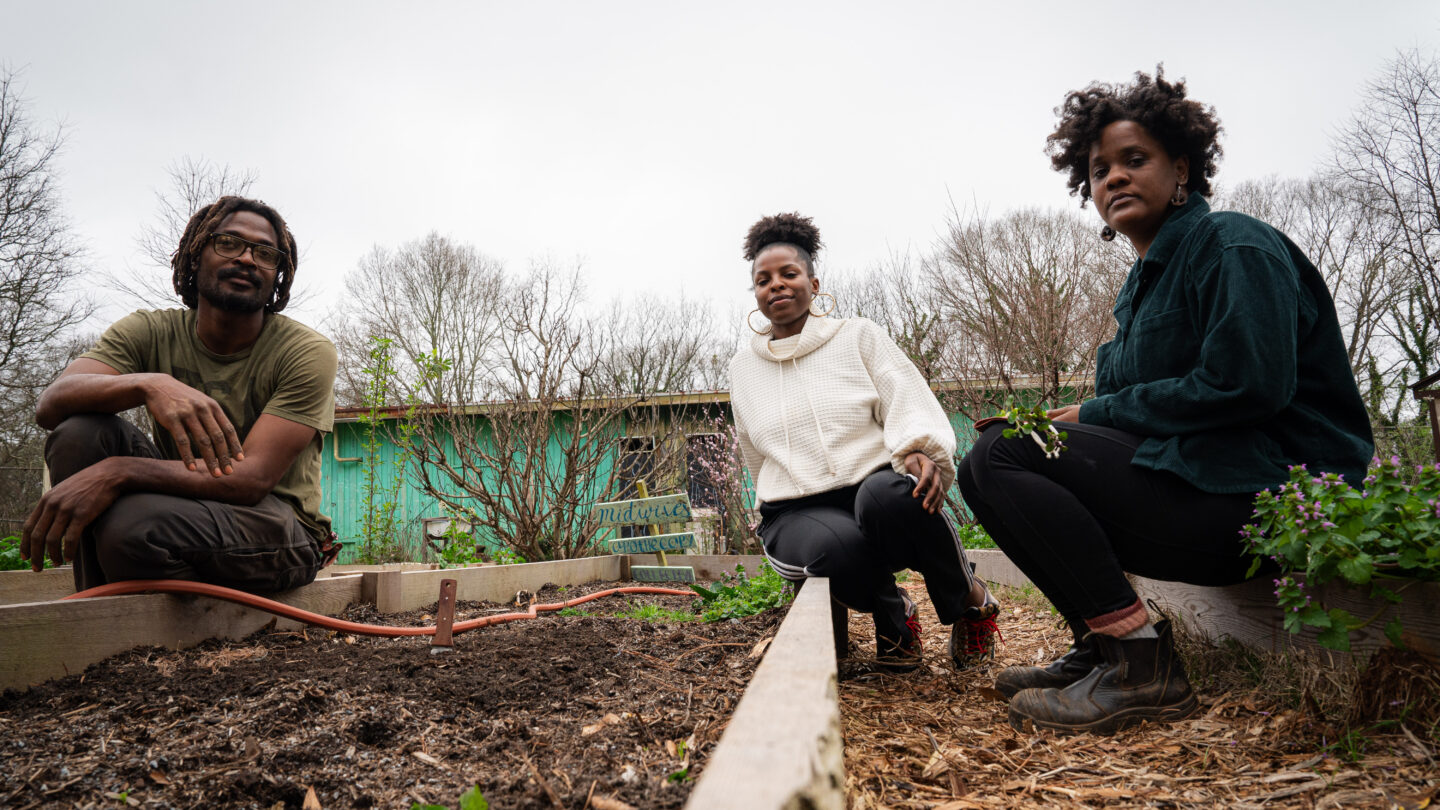
AfroAgriculture also nurtures spiritual connections to the land. Schley says stories are rooted in nature.
“I think that connects the Afro-Indigenous ecological knowings,” Schley said. “Like ancestors in a tree, you know, sometimes when a family member passes away, you plant a tree in their honor.”
Some of the produce grown by AfroAg goes to the neighbors of Hartnett Farm. After nearly four years, co-owner Muhammad says listening to the people’s needs is the best way to expand the business.
“This work isn’t just producing and selling,” Muhammad said. “I learned that it’s serving more than anything… You’re growing people more than you are growing vegetables.”
